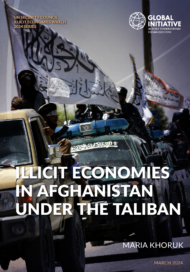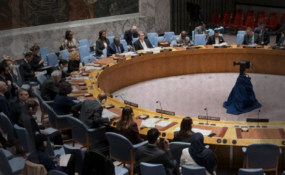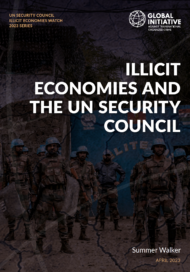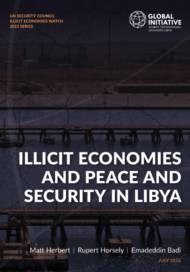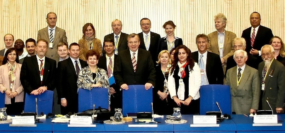Posted on 18 Mar 2024
More than two years after the Taliban’s return to power in Afghanistan on 15 August 2021, the country is once again high on the UN’s agenda. The levels of conflict-related violence may have significantly decreased compared to the Taliban’s time as an insurgent group, but extrajudicial killings, arbitrary arrests and detentions, and other gross human rights violations have continued, targeting in particular women, ethnic minorities, former state officials and people who use drugs (PWUD).
The security situation has been further undermined by the alleged presence and escalating activities of non-state armed groups, such as the Islamic State in Iraq, the Levant-Khorasan (ISIL-K) and the Tehreek-e-Taliban Pakistan (TTP) – although the Taliban has repeatedly denied the TTP’s presence in Afghanistan.
In March 2024, the mandate of the UN Assistance Mission in Afghanistan (UNAMA) will be reviewed. It follows the release (on 8 November 2023) of the independent assessment of the international response in Afghanistan, which the UN Security Council (UNSC) requested in Resolution 2679 (2023). The independent assessment’s recommendations for the international community’s activities in Afghanistan include a structured engagement strategy to address the basic needs of the Afghan people, cooperation on issues affecting regional and global security, and political engagement with the state of Afghanistan and Afghan stakeholders. On 29 December 2023, subsequent to the independent assessment, the UNSC adopted Resolution 2721, in an attempt to balance a call to reintegrate Afghanistan into the international community and the need to meet international obligations. The UNSC’s request for a Special Envoy for Afghanistan, with robust expertise on human rights and gender, sent a call from the main security body that these issues should be front and centre in a coordinated international response.
The independent assessment lists the country’s counter-narcotics strategy as a key reason to engage with the Afghan government, noting the Taliban’s success in significantly reducing the ‘cultivation, processing and trafficking of narcotics’ in Afghanistan. It indicates that ‘[m]any stakeholders expressed interest in exploring greater international cooperation in this area, in particular on alternative crops and livelihoods for the hundreds of Afghans that have relied on the production and trade of narcotics for income’, and that counter-narcotics efforts are linked to addressing the basic needs of the Afghan people through livelihoods programmes. The country’s potential to become a source of uncontrolled outmigration is also listed as a risk factor for regional security.
Since returning to power in August 2021, the Taliban has established and enforced stricter controls of the country’s vast informal economy. Some of the economies have been absorbed by the Taliban, while others have been strictly enforced against – the major trend has been consolidation in one way or the other from more heterogeneous markets. For instance, the United Nations Office on Drugs and Crime (UNODC) has reported a major reduction in opium cultivation (estimated at 95 per cent year-on-year). This short-term success in significantly reducing illicit opium cultivation has had dire implications for the Afghan population and exacerbated the ongoing humanitarian crisis in the country.
Over time, the country’s illicit economy has diversified to include a range of markets – from the trafficking of arms, mineral resources, timber, antiquities and licit commodities to human trafficking. This brief traces changes in the regulatory landscape and enforcement efforts by the Taliban in relation to various illicit markets within the context of the Taliban’s consolidation and centralization of power in Afghanistan. Its objective is to outline developments in illicit economies since the Taliban returned to power in Afghanistan in August 2021 and transformed from an insurgency group into a de facto government. In doing so, its aim is to provide the UN, member states and other stakeholders with a better understanding of the potential security risks and obstacles to sustainable development linked to the recent trends in the operations of Afghanistan’s illicit economies.
This brief is part of the UN Security Council Illicit Economies Watch series, which provides insights into the impacts of illicit economies for Council-relevant countries through country and thematic reports. The illicit economy is a key underlying driver upsetting a peace continuum – and a more effective response is needed.
